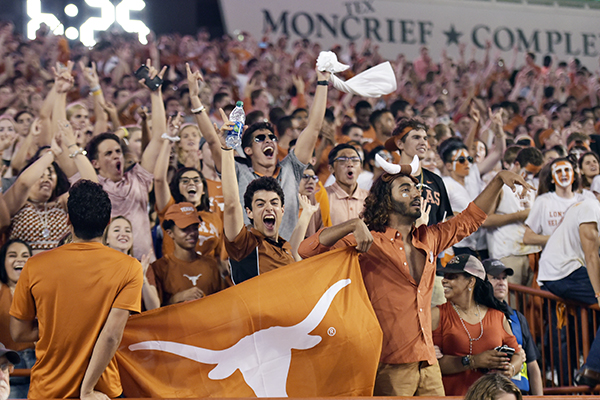UT President Gregory Fenves recently approved a policy some students have said would hurt their voice and influence on the Intercollegiate Athletics Council.
Current and former members of the Council described it as one of the most powerful advisory bodies on campus and said student voices on the committee are essential. It has influence over ticket prices, student attendance at sporting events and hiring coaches.
Before the decision, there was one voting student member on each nine-person athletics council, one for men’s and one for women’s sports. Under the new policy, the councils will combine into one 12-member group with one student vote. The new policy eliminates the student member-elect, a non-voting member who attends meetings for the first year in preparation for their term as a voting member.
University spokeswoman Shilpa Bakre said Fenves made the decision after consulting with “many stakeholders” and that it does not “eliminate student input or decision-making,” because there is still one student vote on the council.
“This is only one organization at UT where students can voice their opinions on athletics,” Bakre said in an email. “There are many other opportunities for students to provide recommendations on inter-collegiate athletics elsewhere on campus.”
Former student body president Colton Becker said in a letter to Fenves that he agreed with combining the two councils but asked Fenves to keep the member-elect position, which gives students a second voice on the council, even if they don’t have a vote.
The policy also increases the faculty stake on the council. Previously, the council had five faculty, two regent appointees, a recent alumnus chosen by the Texas Exes, a student and a student member-elect. Now, the council has eight faculty, two presidential appointees, a Texas Exes appointee and one student.
Andrew Bramlett, current student member and business graduate student, previously told The Daily Texan his years as a member-elect were helpful for learning the ropes and making the most of their second years.
“Having a voting and a non-voting (student) member doesn’t change the influence of faculty on the council,” Bramlett said. “It allows the student voice to be heard with more importance in a stronger way.”





















